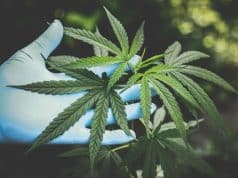Fasting, practiced for various reasons such as religious observances, health benefits, or weight management, involves abstaining from food and, in some cases, beverages for a specific period. While fasting can offer many benefits, it also presents certain challenges to the body, particularly in maintaining proper hydration.
As water is responsible for the fundamental balance for overall well-being, understanding the importance of hydration during fasting becomes even more important.
In this article, we’ll explore why staying hydrated is essential during fasting and how it can help us feel better and make the fasting experience safer.
Why Hydration Matters During Fasting?
Hydration is particularly crucial during fasting, as when we fast, our bodies rely heavily on stored energy reserves to function, leading to increased water loss through various processes. Proper hydration helps us stay energized, alert, and focused. It supports our immune system, aids in nutrient absorption, and helps to flush out toxins. As a result, staying properly hydrated becomes crucial to maintain our well-being and support the body’s essential functions. Using a fasting timer & tracker by Zero you can also schedule your time for drinking water.
- Preventing Dehydration
Fasting can lead to dehydration if we don’t drink enough water. Dehydration occurs when our bodies lose more water than they take in, causing an imbalance in our fluid levels. This can lead to symptoms like dizziness, fatigue, dry mouth, and headaches.
- Supporting Body Functions
Water plays a crucial role in many bodily functions, such as digestion, circulation, and temperature regulation. Staying hydrated during fasting ensures that these functions continue to operate smoothly.
- Sustaining Energy Levels
Proper hydration helps maintain energy levels, which can be especially important during fasting when our bodies are relying on stored energy. Drinking enough water can help prevent feelings of tiredness and lethargy.
- Enhancing Detoxification
Hydration is vital for the kidneys to effectively remove waste and toxins from our bodies. During fasting, the process of detoxification becomes even more critical, making adequate water intake essential.
- Aiding Cognitive Function
Dehydration can negatively affect cognitive function, including concentration, focus, and memory. By staying hydrated, we can support our mental clarity and overall cognitive performance.
- Balancing Electrolytes
Electrolytes are essential minerals like sodium, potassium, and magnesium that help maintain proper fluid balance in our bodies. When we fast, electrolyte imbalances can occur, and staying hydrated can help prevent these disruptions.
- Alleviating Hunger Sensations
Sometimes, feelings of hunger during fasting can be mistaken for thirst. Drinking water can help alleviate these hunger sensations and provide a sense of fullness.
- Promoting Overall Well-Being
Proper hydration is fundamental to our overall well-being. It can positively impact our mood, makes your skin glow during fasting, and immune system, making fasting a more enjoyable and beneficial experience.
Potential Risks of Dehydration During Fasting
While fasting can offer various health benefits, the practice also comes with potential risks, especially when it comes to dehydration. Understanding the potential risks of dehydration during fasting is essential to ensure a safe and successful fasting experience. Here are some of the significant risks:
- Dizziness and Fatigue: Dehydration can cause a drop in blood pressure, leading to feelings of dizziness and lightheadedness. It can also contribute to fatigue and reduced energy levels, making fasting challenging to sustain.
- Headaches: Lack of adequate water intake during fasting can trigger headaches or migraines due to reduced blood flow and oxygen to the brain.
- Impaired Cognitive Function: Dehydration can negatively impact cognitive function, affecting memory, concentration, and decision-making abilities.
- Kidney Stress: Fasting without sufficient water intake can put stress on the kidneys, hindering their ability to filter waste and toxins effectively.
- Constipation: Dehydration can lead to constipation and digestive discomfort, as water is essential for smooth bowel movements.
- Muscle Cramps: Insufficient water intake can result in electrolyte imbalances, leading to muscle cramps and spasms.
- Increased Heart Rate: Dehydration can cause the heart to work harder, leading to an elevated heart rate and potential cardiovascular strain.
- Heat-related Illnesses: Dehydration can reduce the body’s ability to regulate temperature, increasing the risk of heat-related illnesses, especially in hot climates.
- Impaired Exercise Performance: For those who exercise during fasting, dehydration can impair physical performance and recovery.
To control these risks and ensure a safe fasting experience, it is essential to prioritize hydration. Drinking enough water during non-fasting hours and consuming hydrating foods can help maintain proper fluid balance and support overall well-being.
Remember that individual hydration needs may vary based on factors such as age, activity level, and climate. Always listen to your body, and if you experience any severe symptoms of dehydration during fasting, consider breaking your fast and seeking medical attention if necessary. Proper hydration can enhance the benefits of fasting while safeguarding against potential risks, allowing you to make the most of this transformative practice.
Practical Tips for Staying Hydrated While Fasting
Staying properly hydrated during fasting is essential for maintaining your health and well-being throughout the process. Although you may not be consuming food and drinks as usual, there are practical ways to ensure you stay hydrated during this period. Here are some helpful tips:
- Start Hydrating Before Fasting: Before you begin fasting, make sure to drink plenty of water to ensure you are well-hydrated from the start.
- Consume Hydrating Foods: Incorporate hydrating foods into your pre-fasting meals, such as fruits (watermelon, oranges, and cucumber) and vegetables (lettuce and celery).
- Set Hydration Goals: Determine how much water you need to drink each day and set hydration goals. Carry a water bottle with you to keep track of your intake.
- Drink Water Regularly: Sip water throughout the day, even during non-fasting hours. This will help you maintain hydration and avoid excessive thirst during fasting.
- Avoid Sugary or Caffeinated Beverages: While fasting, steer clear of sugary drinks and caffeine, as they can dehydrate you. Opt for plain water or herbal teas instead.
- Break Your Fast with Water: When breaking your fast, start with a glass of water before consuming other foods or drinks.
- Listen to Your Body: Pay attention to your body’s signals and drink water when you feel thirsty. Thirst is an indicator that your body needs hydration.
- Opt for Water-Rich Soups: If you choose to have soup during fasting, opt for water-based broths or clear soups to increase your water intake.
- Monitor Urine Color: Keep an eye on the color of your urine; pale yellow indicates good hydration, while dark yellow may suggest dehydration.
- Include Electrolytes: If you’re fasting for an extended period or engaging in physical activity, consider adding electrolyte-rich drinks or supplements to maintain balance.
- Stay Cool: If fasting during hot weather, avoid direct sunlight and stay in shaded areas to reduce the risk of dehydration.
- Break Your Fast Gradually: When ending your fast, avoid consuming large amounts of water too quickly. Start with small sips and gradually increase your intake.
Remember that individual hydration needs can vary, so it’s essential to find a balance that works best for you. Prioritize staying hydrated during fasting to ensure a safe and enjoyable experience, allowing you to make the most of this period of reflection and personal growth.
Embrace the power of hydration to enhance the benefits of fasting, supporting your overall health and well-being while deepening your connection with yourself. With the right approach, fasting can become a time of reflection, renewal, and self-discovery, guided by the gentle and essential flow of water, the elixir of life. So, as you embark on your fasting journey, let the wisdom of hydration be your companion, guiding you towards a fulfilling and revitalizing experience. Cheers to a well-hydrated and enriching fasting journey ahead!

Speaks from heart, always too passionate and driven by emotions. Spins the words with kindness & sharpness, intriguing your ever-inscrutable minds.




